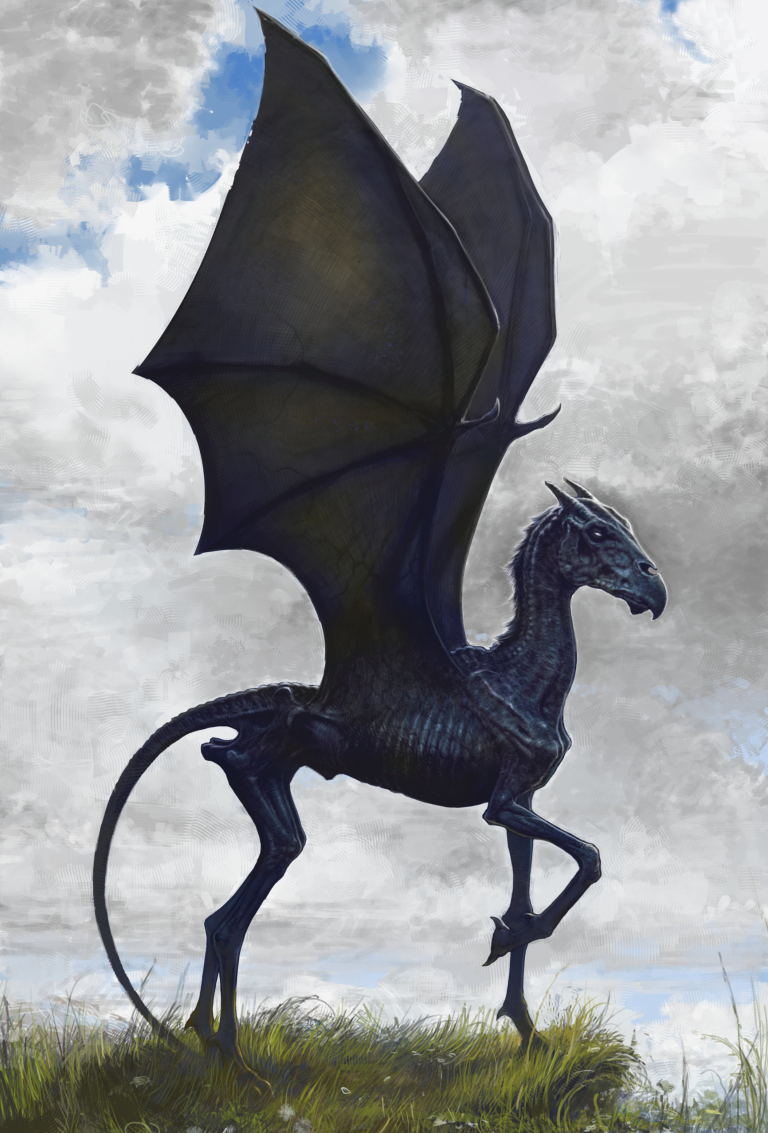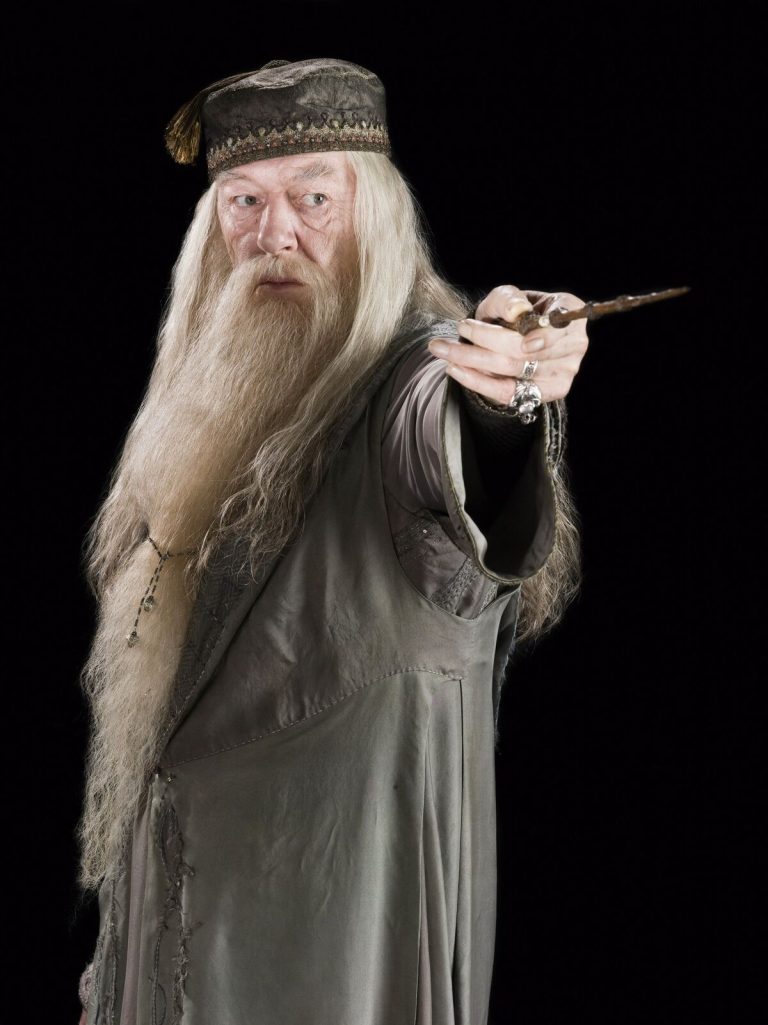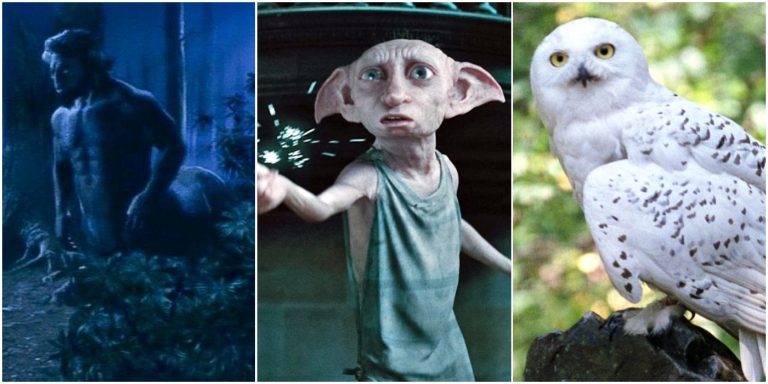What Is The Significance Of The House-elf Winky?
House-elves are fascinating creatures in the magical world of Harry Potter, and one house-elf in particular has captured the hearts of fans worldwide. What is the significance of the House-elf Winky? Well, let’s dive into the enchanting world of Winky and explore the impact she has on the beloved series.
Winky, the loyal house-elf of the Crouch family, first appears in “Harry Potter and the Goblet of Fire.” She is a small creature with a tea-towel wrapped around her head, and her presence adds a touch of magic and mystery to the story. While house-elves are often portrayed as obedient and subservient, Winky breaks the mold by showcasing a complex range of emotions and struggles. Through her character, J.K. Rowling delves into themes of enslavement, loyalty, and the importance of freedom.
Winky’s significance lies in her representation of the plight of house-elves in the wizarding world. She serves as a symbol of the injustice and inequality that exists within the magical community. Winky’s loyalty to the Crouch family, even when they mistreat her, highlights the power dynamics at play. Her story sheds light on the mistreatment and oppression faced by house-elves, prompting readers to question the ethics of their treatment and the need for change. So, let’s unravel the intricacies of Winky’s character and delve into the significance she brings to the magical world of Harry Potter.

Exploring the Significance of the House-elf Winky
The world of Harry Potter is filled with fascinating and magical creatures, and one such creature is the house-elf. Among the house-elves introduced in the series, Winky stands out as a memorable character with a significant role to play. In this article, we will delve into the significance of Winky and the impact she has on the broader narrative of the Harry Potter universe.
Winky’s Introduction and Role
Winky is first introduced in “Harry Potter and the Goblet of Fire” as the loyal house-elf of the Crouch family. Her primary duty is to serve and assist her masters, Bartemius Crouch Sr. and Jr. However, Winky’s role extends beyond being a household servant. She symbolizes the complex dynamics of power, prejudice, and liberation within the wizarding world.
As a house-elf, Winky represents the marginalized and oppressed. House-elves are enslaved creatures bound to serve their wizarding masters, often subjected to mistreatment and abuse. Winky’s story sheds light on the harsh realities faced by these creatures and raises important questions about the ethics of enslavement in the wizarding community.
Winky’s personal journey also mirrors the struggles faced by many individuals who have been conditioned to accept their circumstances without questioning them. Her loyalty to the Crouch family, despite their mistreatment, initially portrays her as a passive character. However, as the story progresses, we witness her growth and development, challenging the stereotypes associated with house-elves.
The Representation of House-Elf Rights
Winky’s significance lies in her representation of the broader theme of house-elf rights. Throughout the series, J.K. Rowling uses Winky’s character to explore the concept of liberation and the fight for freedom from oppression. Winky’s internal conflict and her eventual alliance with other house-elves, such as Dobby, highlight the importance of unity and collective action in the face of injustice.
Winky’s journey also parallels the efforts of Hermione Granger, who becomes an advocate for house-elf rights. Hermione’s determination to challenge the status quo and improve the lives of house-elves is exemplified through her formation of the Society for the Promotion of Elfish Welfare (S.P.E.W.). Winky’s presence serves as a catalyst for Hermione’s activism, further emphasizing the significance of her character.
As the narrative progresses, we witness the gradual shift in public perception regarding house-elf rights. Winky’s story helps to humanize these magical creatures, challenging the prejudice and stereotypes held by the wizarding community. Through Winky’s transformation and the growing recognition of house-elf autonomy, the series encourages readers to question societal norms and fight for the rights of all beings.
In conclusion, the significance of the house-elf Winky lies in her portrayal of the struggles faced by oppressed and marginalized individuals within the wizarding world. Through her character, J.K. Rowling explores themes of power, prejudice, and liberation, highlighting the importance of unity and collective action in the face of injustice. Winky’s journey serves as a catalyst for change, challenging societal norms and advocating for the rights of house-elves. Her presence in the Harry Potter series contributes to a deeper understanding of the complexities of the magical world and resonates with readers on a profound level.
Key Takeaways: What is the significance of the House-elf Winky?
- Winky is a house-elf introduced in the Harry Potter series.
- She serves as a representation of the mistreatment and discrimination faced by house-elves.
- Winky’s loyalty to her former master, Barty Crouch Sr., highlights the complex relationship between house-elves and their owners.
- Her storyline also sheds light on the theme of freedom and liberation for oppressed magical creatures.
- Winky’s redemption arc showcases the capacity for growth and change, emphasizing the importance of empathy and compassion.
Frequently Asked Questions
Who is Winky the House-elf?
Winky is a House-elf introduced in J.K. Rowling’s Harry Potter series. She first appears in the fourth book, “Harry Potter and the Goblet of Fire.” Winky is initially the personal servant of Barty Crouch Sr., a high-ranking official in the Ministry of Magic. She is described as small, with a squeaky voice and a tea towel for a skirt.
Winky’s role in the story is significant as she represents the plight of House-elves in the wizarding world. She is bound by magical enslavement and is forced to follow the orders of her masters without question. Winky’s character raises important themes of freedom, inequality, and the mistreatment of magical beings.
What is the significance of Winky’s dismissal from the Crouch family?
Winky’s dismissal from the Crouch family is a pivotal moment in her story arc. After being accused of negligence in the events surrounding the Triwizard Tournament, Winky is set free by Barty Crouch Sr. This action is significant as it symbolizes a shift in Winky’s character and highlights the changing dynamics of the wizarding world.
By releasing Winky from her servitude, Crouch acknowledges the injustice of House-elf enslavement. This moment also marks a turning point for Winky as she must navigate life as a free elf, facing the challenges and prejudices that come with her newfound freedom.
How does Winky’s character challenge societal norms in the wizarding world?
Winky’s character challenges societal norms in the wizarding world by highlighting the mistreatment of House-elves and advocating for their rights. Throughout the series, House-elves are portrayed as subservient and often overlooked magical beings. However, Winky’s story sheds light on the injustice and cruelty they face.
Winky’s loyalty and dedication to her master, Barty Crouch Sr., despite his mistreatment of her, challenges the notion that House-elves are content with their enslavement. Her dismissal from the Crouch family and subsequent struggles as a free elf further emphasize the need for societal change and the recognition of House-elves as deserving of respect and freedom.
What role does Winky play in the broader narrative of the Harry Potter series?
Winky plays a significant role in the broader narrative of the Harry Potter series by highlighting the themes of discrimination and inequality. Her character serves as a vehicle through which the reader can examine the mistreatment of House-elves and the ethical implications of their enslavement.
Winky’s story also provides a contrast to the actions of other characters, such as Hermione Granger, who advocate for House-elf rights. By featuring Winky’s struggles and eventual freedom, the narrative encourages empathy and understanding towards marginalized magical beings.
What lessons can be learned from Winky’s character?
Winky’s character teaches important lessons about empathy, equality, and the power of standing up for what is right. Her story encourages readers to question societal norms and recognize the injustices that may exist within their own world.
Winky’s journey from a loyal and obedient servant to a free elf demonstrates the importance of resilience and the potential for personal growth. Her character reminds us that change is possible, and that even the smallest individuals can make a significant impact in the fight for justice and equality.

The Life of Dobby (Origins Explained)
Final Thought: Unlocking the Significance of House-elf Winky
Throughout the Harry Potter series, House-elves play a crucial role in the wizarding world, and Winky is no exception. While initially introduced as a minor character, Winky’s significance expands as the story progresses, shedding light on themes of loyalty, freedom, and the consequences of prejudice. Winky’s journey serves as a powerful reminder of the complexities and injustices that exist within the magical realm.
Winky’s loyalty to the Crouch family is unwavering, highlighting the intricate relationship between House-elves and their masters. Her devotion to Barty Crouch Sr., despite his mistreatment, demonstrates the profound bond House-elves form with their owners. This loyalty, however, comes at a cost. Winky’s enslavement reflects the darker side of the wizarding world, where House-elves are seen as disposable servants rather than individuals with their own desires and aspirations.
As the series progresses, Winky’s story takes a tragic turn when she is wrongly accused of a crime she did not commit. Her subsequent dismissal by the Crouch family and descent into despair is a poignant reminder of the injustice House-elves face. Through Winky’s arc, J.K. Rowling highlights the importance of recognizing the inherent worth and rights of all beings, regardless of their magical abilities or social status.
In conclusion, Winky’s significance in the Harry Potter series extends far beyond her initial introduction. She serves as a symbol of the struggles faced by House-elves, shedding light on themes of loyalty, freedom, and prejudice. Winky’s journey reminds us of the need to challenge societal norms and fight for equality, both in the wizarding world and in our own. So, the next time you encounter a House-elf in the Harry Potter universe, remember Winky and the lessons she teaches us about compassion, justice, and the power of standing up for what is right.






